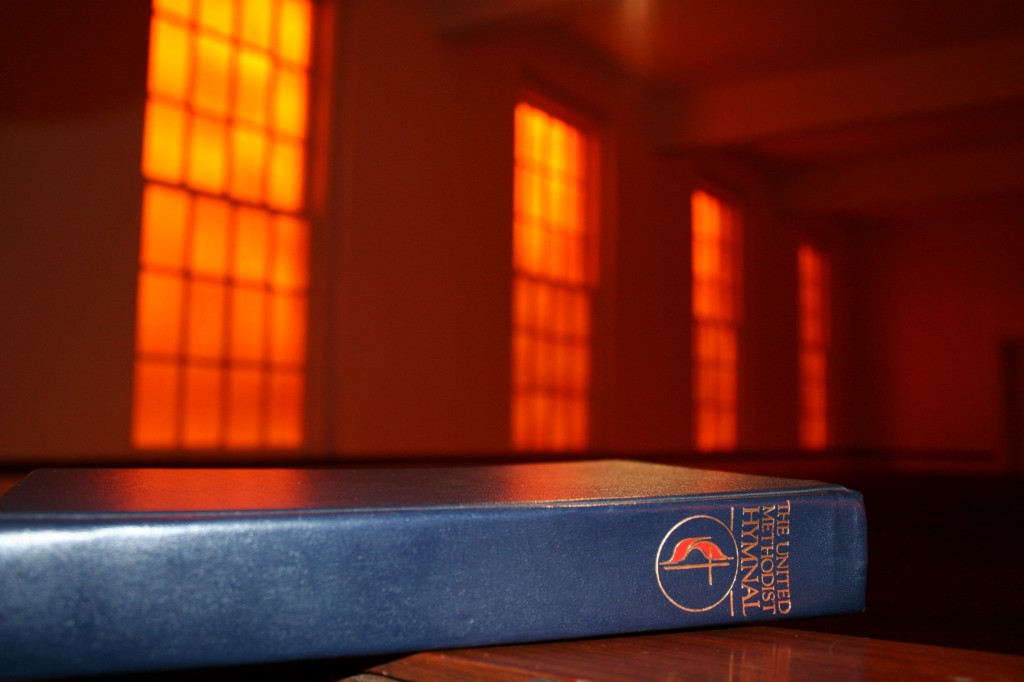Socially Responsible Investing: Divesting from Fossil Fuels
Talking to the Reverend Jenny Phillips about Fossil Free UMC.

Over the last three years, socially responsible investing (sometimes called “ethical investing” or “impact investing”) has grown by thirty-three percent. According to The Forum for Sustainable and Responsible Investment, at the end of 2015 more than one out of every five professionally managed dollars were invested in a socially responsible manner. That’s $8.72 trillion.
To learn more about socially responsible investing, I reached out to the Reverend Jenny Phillips, a woman who has been on the forefront of the movement, helping push a global religious organization with a $21 billion investment fund towards divestment from fossil fuels.
In the following conversation, we discuss how she got started, what kind of action she’s taken to further this cause, and how you can get involved in the climate change movement in your own community, including divestment from fossil fuels.
BS: Can you tell me exactly what you do?
JP: I am the Minister for Environmental Stewardship and Advocacy for the Northwest regional body of The United Methodist Church (UMC), Founder of Fossil Free UMC, and former Divest/Invest Director of Greenfaith. I work with faith communities to organize and advocate for the health and sustainability of our common home.
How did you get started?
Several years ago, I read an article by Bill McKibben [“The Case for Fossil-Fuel Divestment”]. He said we were past the point where we could save the planet by changing our light bulbs; that we could only change course by changing the economy. The notion that it is wrong to profit from wrecking the planet really resonated with me. I met with some friends around my kitchen table to brainstorm and Fossil Free UMC, the denomination’s divestment movement, was born.
The Case for Fossil-Fuel Divestment
So it started out simply, just you and a few friends. What happened from there?
I cultivated and supported a team whose primary goal was to pass legislation that would add fossil fuels to its socially responsible investment screens. The UMC already screens for investments in tobacco, alcohol, gambling, weapons, and private prisons. We wanted the church to add fossil fuels to the list. We led a campaign that built international support for the legislation. In particular, it didn’t make sense to fund their retirement accounts with fossil fuel profits.
We created a situation in which financial leaders were called to wrestle with ethics at the intersection of environmental and financial stewardship. While our legislation didn’t pass globally, our movement made an impact. Regional bodies are now making their own divestment commitments (similar to how states and cities are stepping up to commit to the goals of the Paris agreement even though the United States is now rejecting them).
And something pretty amazing happened — I was elected to serve on the board of the denomination’s $21 billion pension fund and we are now in the process of establishing fossil free investment options for clergy, regional bodies, and other church entities.
This is what you do professionally. What does divestment look like in your personal life?
There is a significant intersection. I am very much looking forward to the end of the year because I will be able to move the funds in my personal investment account into the fossil free funds I helped create!
What advice do you have for someone who is just getting started and wants to get involved, either in the divestment movement or in fighting climate change generally?
I think it’s important to find an entry point that fits with your values and your situation. If you participate in a work-sponsored retirement program, find out if it offers fossil-free, socially responsible investment options and use them. If you are told that fossil free investing isn’t realistic/is too expensive/is not possible, move on. There are now lots of excellent fund managers and mutual funds in the marketplace that can help you align your investments with your values. You may also want to consider the values of the financial institutions you use. Significant campaigns are underway urging people to switch away from large banks that fund fossil fuel infrastructure and instead use credit unions and community banks.
When it comes to climate activism, start where you are. Support government leaders and businesses working for a low-carbon economy. If your local leaders aren’t engaged with climate action, call and write and ask them to make climate a priority. Learn how to have respectful conversation with people with whom you disagree on climate issues. Relationships are foundational to our humanity, and we have to find common ground with one another if we want to save the planet.
What other resources are available if someone wants to learn more or get involved?
Gofossilfree.org gives general information about divesting as well as tips on how to take action. Fossilfreefunds.org allows users to search funds and determine if they are truly divested from fossil fuels. Divestinvest.org provides resources for individuals and companies wishing to work towards local and global divestment as well as links to related media. 350.org is working to build the climate change movement and can connect you with local campaigns and organizations.
Beth Swanson is a freelance writer from North Bend, WA. She writes about living an active life with a hidden disability. She is not quiet. Follow her blog, My Crazy Messy Amazing Life, or visit her on Twitter @crazymessyamaze.
Support The Billfold
The Billfold continues to exist thanks to support from our readers. Help us continue to do our work by making a monthly pledge on Patreon or a one-time-only contribution through PayPal.
Comments